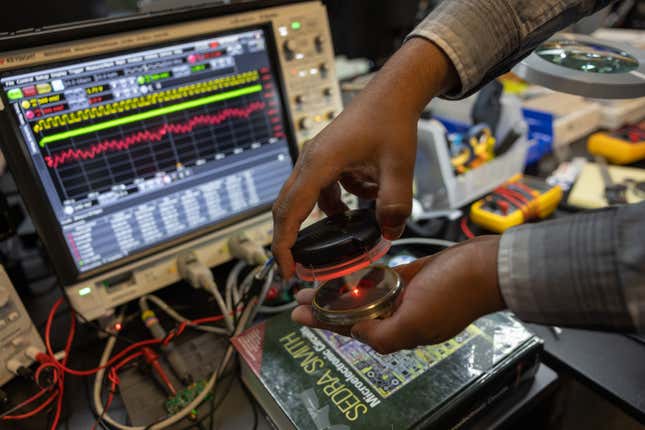
Paradromics, an Austin-based neurotech startup, said it will start testing its brain-computer interface on humans next year.
The competitor to Elon Musk’s Neuralink was founded in 2015 and has raised $87 million in venture investment and $18 million in public funding so far, CNBC reported.
Unlike Neuralink’s brain chip, which allows people with paralysis to control electronics with their brain, Paradromics’s device is focused on helping people who lost their ability to communicate due to paralysis, ALS, or a spinal injury.
“The reason we’ve chosen to focus on motor and speech is because these are well trodden in our research community and the science exists,” Paradromics chief scientific officer Vikash Gilja told CNBC.
In May, the startup announced that the U.S. Food and Drug Administration granted its brain implant a “Breakthrough Device Designation” placing it in an expedited review track at the agency.
The device is called the Connexus Direct Data Interface and it works by reading a patient’s brain signals to interpret the patient’s intended speech.
Paradromics CEO and Founder Matt Angle told CNBC that he expects the implant to be commercially available by 2029. The startup anticipates that its brain chip will retail for about $100,000.
Angle said that early brain chips would likely only be used to treat severe medical conditions, but in the future they could be used for other applications.
“I think there could be a different conversation 20 years from now, and some of those devices could also have consumer applications. But in the meantime, we’re really focused on building safe, reliable, robust devices for people with physical and mental conditions,” Angle told CNBC.
Neuralink implanted its brain chip on its first human patient earlier this year and is already recruiting more patients for a lager clinical trial.